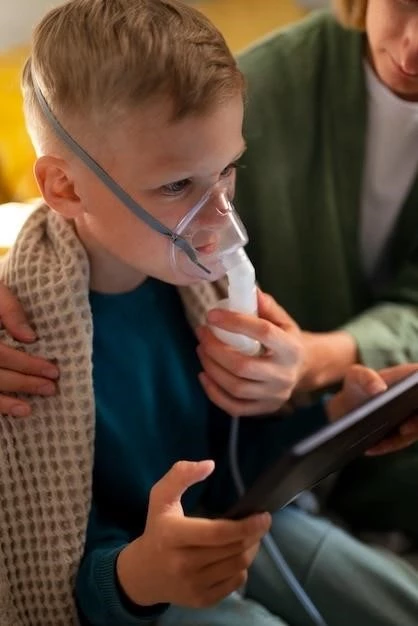Introduction to Morillo-Cucci-Passarge Syndrome
Morillo-Cucci-Passarge Syndrome is a rare genetic disease with unique characteristics. Learn more about this syndrome to better understand its complexities and challenges.
What is Morillo-Cucci-Passarge Syndrome?
Morillo-Cucci-Passarge Syndrome, also known as Schöpf-Schulz-Passarge syndrome, is a rare genetic disorder that presents with a unique set of clinical features. This syndrome is characterized by various physical and developmental abnormalities, including facial dysmorphia, joint hyperextensibility, clinodactyly, growth retardation, and intellectual disabilities. Understanding the complexities of Morillo-Cucci-Passarge Syndrome is crucial in providing appropriate care and support for individuals affected by this condition.
What is Morillo-Cucci-Passarge Syndrome?
Morillo-Cucci-Passarge Syndrome, also known as Schöpf-Schulz-Passarge syndrome, is a rare genetic disorder characterized by physical and developmental abnormalities, including unique facial features, joint hyperextensibility, and intellectual disabilities. Understanding the genetic basis of this syndrome is essential for diagnosis and management.
Autosomal Recessive Inheritance
Schöpf-Schulz-Passarge syndrome is an autosomal recessive genetic condition characterized by the need for two faulty copies of the gene, one from each parent, for the syndrome to manifest. Heterozygous individuals with one faulty copy of the WNT10A gene may exhibit certain physical abnormalities. Understanding the modes of inheritance is crucial in determining the risk of passing on this syndrome to offspring.
Clinical Presentation of Morillo-Cucci-Passarge Syndrome
Morillo-Cucci-Passarge Syndrome presents with a unique set of characteristics, including facial dysmorphia, joint hyperextensibility, clinodactyly, growth retardation, and intellectual disabilities. It is crucial to recognize these symptoms for early diagnosis and effective management.
Common Symptoms and Characteristics
Morillo-Cucci-Passarge Syndrome is identified by a distinct set of clinical features, such as facial dysmorphia, joint hyperextensibility, clinodactyly, growth retardation, and intellectual disabilities. Recognizing these common symptoms is vital for prompt diagnosis and appropriate management of the syndrome.
Diagnosis of Morillo-Cucci-Passarge Syndrome
Diagnosing Morillo-Cucci-Passarge Syndrome involves recognizing key physical and developmental characteristics, conducting clinical evaluations, genetic testing, and consulting with healthcare professionals specializing in genetic disorders. Early and accurate diagnosis is crucial for appropriate management.
Methods and Tests Used for Diagnosis
Diagnosing Morillo-Cucci-Passarge Syndrome involves a comprehensive approach, including physical examinations, genetic testing to identify specific mutations, imaging studies to assess skeletal abnormalities, and consultation with multidisciplinary specialists. Healthcare providers may also consider family medical history to determine the likelihood of genetic inheritance. Timely and accurate diagnosis is crucial for appropriate management and support.
Treatment Options for Morillo-Cucci-Passarge Syndrome
Effective management of Morillo-Cucci-Passarge Syndrome involves a comprehensive approach tailored to each individual’s specific needs. Collaborate with healthcare professionals to explore potential treatment options, including therapeutic interventions and supportive care, to enhance the quality of life for individuals affected by this syndrome.
Management Strategies and Therapies
When managing Morillo-Cucci-Passarge Syndrome, it is essential to adopt individualized strategies that may include addressing developmental delays, providing physical and occupational therapies, offering specialized educational support, and collaborating with a team of healthcare professionals. Ensuring a holistic approach to care can significantly improve the quality of life for individuals living with this syndrome.
Research and Studies on Morillo-Cucci-Passarge Syndrome
Research and studies on Morillo-Cucci-Passarge Syndrome have provided insights into its clinical manifestations and genetic underpinnings. Stay updated on the latest findings to better understand the complexities of this rare genetic disorder.
Notable Findings and Discoveries
Researchers have identified specific genetic mutations and clinical features associated with Morillo-Cucci-Passarge Syndrome, shedding light on its pathogenesis and potential treatment approaches. Stay informed about the latest discoveries to enhance the understanding and management of this rare genetic disorder.
Support Services for Individuals with Morillo-Cucci-Passarge Syndrome
Explore available resources and organizations dedicated to offering support for individuals and families affected by Morillo-Cucci-Passarge Syndrome. Accessing these services can provide valuable assistance and guidance in managing this rare genetic disorder.
Available Resources and Organizations
For individuals with Morillo-Cucci-Passarge Syndrome, resources and organizations provide valuable support and information. Accessing these resources can help individuals and families navigate the challenges of this rare genetic disorder. Stay connected with these dedicated support services to receive assistance tailored to your needs.

Prognosis and Outlook for Morillo-Cucci-Passarge Syndrome
Understanding the prognosis and outlook for Morillo-Cucci-Passarge Syndrome is essential in guiding treatment decisions and providing appropriate support. Stay informed about the latest research and advancements to enhance the management of this rare genetic disorder.
Long-Term Effects and Life Expectancy
Morillo-Cucci-Passarge Syndrome may lead to various long-term effects impacting physical and cognitive abilities. Understanding these effects and potential complications is essential in providing adequate care and support. Stay informed about the evolving prognosis and life expectancy associated with this syndrome to better plan for the future and ensure the well-being of affected individuals.

Complications Associated with Morillo-Cucci-Passarge Syndrome
Complications linked to Morillo-Cucci-Passarge Syndrome can involve various health challenges. Understanding and addressing these potential complications are crucial for effective management and supportive care. Stay informed to navigate potential complexities associated with this rare genetic disorder.
Potential Health Challenges
Morillo-Cucci-Passarge Syndrome presents various potential health challenges that individuals may face, including mental retardation, facial anomalies, short stature, seizures, and finger and toe abnormalities. Addressing these challenges through appropriate care and support is essential for the well-being of affected individuals.
Coping Strategies for Individuals and Families
Dealing with Morillo-Cucci-Passarge Syndrome requires resilience and tailored coping mechanisms. Engage in psychological support, join support groups, and utilize coping techniques to navigate challenges effectively.
Psychological Support and Coping Mechanisms
Utilize psychological support services and develop coping mechanisms to navigate the emotional challenges associated with Morillo-Cucci-Passarge Syndrome. Engaging in therapy, joining support groups, and practicing stress-reducing techniques can help individuals and families cope effectively with the demands of this rare genetic disorder.
Future Directions in Morillo-Cucci-Passarge Syndrome Research
Stay informed about the latest research efforts on Morillo-Cucci-Passarge Syndrome to uncover new insights and advancements in understanding this rare genetic disorder. Keeping abreast of emerging discoveries can shape future treatments and support strategies for individuals affected by the syndrome.
Promising Areas of Investigation
Ongoing research into Morillo-Cucci-Passarge Syndrome focuses on identifying novel genetic mutations, investigating potential treatment targets, and understanding the underlying mechanisms of the syndrome. Exploring these promising areas of investigation may lead to improved diagnostic methods, innovative therapies, and enhanced support for individuals affected by this complex genetic disorder.
